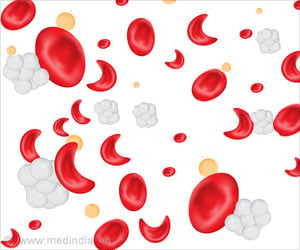Thalassemia is a genetic blood disorder characterized by the abnormal production of hemoglobin in the body is more prevalent in India. Prenatal tests can help to identify these blood disorders in babies before birth.
- Thalassemia is a genetic blood disorder characterized by the abnormal production of hemoglobin in the body
- India has been termed the "thalassemia capital" of the world
- Prenatal tests such as carrier genetic tests can help to detect these blood disorders in babies before birth
Thalassemia is a genetic blood disorder characterized by the abnormal production of hemoglobin in the body.
Thalassemia has a severe impact on the body including excessive iron, bone deformities, enlarged spleen, the slow growth rate for children and in some instances also lead to heart disorders.
There no cure for this disorder and people diagnosed with thalassemia need regular blood transfusions to maintain a routine lifestyle.
Prevalence of Thalassemia in India
India has the largest disease burden for thalassemia in the world. Every month, there are over 40 million carriers and 100,000 thalassemia majors under blood transfusion.
Thalassemia carriers are unintentionally passing on this genetic disorder to their children due to lack of education awareness programs, genetic counseling, and preventative screening programs.
Hence, it is difficult to initiate a national programme reaching all rural regions where almost 70% of our population resides.
Carriers are unknowingly passing on this serious genetic disorder to their children
Based on 27 million births per year in India, it has been suggested that there would be 32,400 babies born each year with a serious hemoglobin disorder.
Among the 10,000 to 12,000 thalassemic children born annually in India, only a few in urban regions are able to manage the disorder although the Government of India has announced to offer special care and management of patients with thalassemia and sickle cell disease in the 12th Five Year Plan.
We need a national plan to prevent, manage and offer adequate treatment for patients.
The treatment and medications are very expensive. Therefore, patients require both free blood transfusions clubbed with free lab tests and iron chelation medicines and other supplements.
The disease risk can be lowered if gynecologists join hands with genetic counselors and screen for thalassemia in every pregnant woman.
Prenatal Tests and Family Genetic Studies the Solution
Prenatal tests can help to detect these blood disorders before birth. Family genetic studies facilitate to understand if people have missing or altered hemoglobin genes that cause thalassemias. Prenatal testing is necessary if one is expecting a baby and if either partner is a thalassemia carrier.
Carrier Genetic Test (CGT)
Carrier genetic test can be conducted before pregnancy, which can help to identify whether the baby will stand the risk of having any of the serious diseases such as thalassemia. Early detection of the disease can help to plan preventive measures to combat the disease.
CGT is a significant genetic test related to family planning as it facilitates in determining the percentage of risk involved with the birth of the child. It also helps in discovering whether the parents are the carriers of the genetic disorder. The test needs to be conducted in both the parents.
In the cases where both members of the couple are established to be the carrier of the same recessive gene, they can consult their specialist about the option of Pre-implantation Genetic Diagnosis (PGD) to conceive a healthy child.
Source-Medindia












